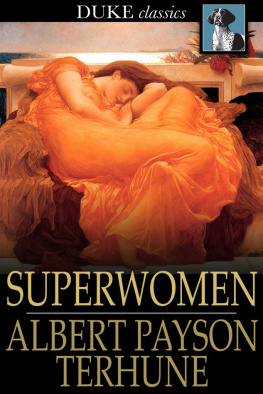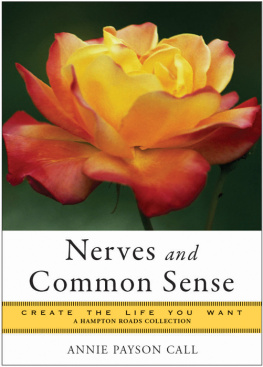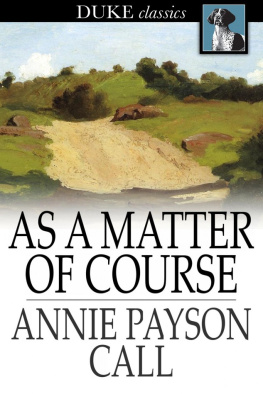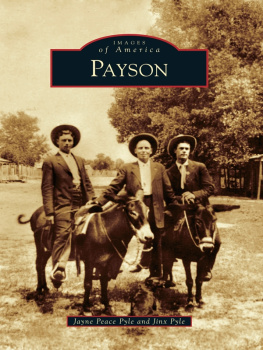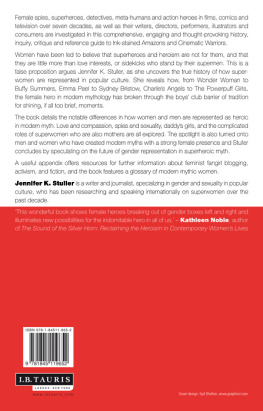SUPERWOMEN
OR, FAMOUS HUSSIES OF HISTORY
* * *
ALBERT PAYSON TERHUNE
*
Superwomen
Or, Famous Hussies of History
First published in 1916
ISBN 978-1-62012-873-2
Duke Classics
2012 Duke Classics and its licensors. All rights reserved.
While every effort has been used to ensure the accuracy and reliability of the information contained in this edition, Duke Classics does not assume liability or responsibility for any errors or omissions in this book. Duke Classics does not accept responsibility for loss suffered as a result of reliance upon the accuracy or currency of information contained in this book.
Contents
*
Foreword
*
Find the Woman.
You will discover her in almost every generation, in almost everycountry, in almost every big citythe Super-Woman. She is not thetypical adventuress; she is not a genius. The reason for her strangepower is occult. When psycho-vivisectionists have thought they hadsegregated the causethe formulawhat you willin one particularSuper-Woman or group of Super-Women, straightway some new member ofthe clan has arisen who wields equal power with her notable sisters,but who has none of the traits that made them irresistible. And theseekers of formulas are again at sea.
What makes the Super-Woman? Is it beauty? Cleopatra and Rachel werehomely. Is it daintiness? Marguerite de Valois washed her hands buttwice a week. Is it wit? Pompadour and La Valliere were avowedlystupid in conversation. Is it youth? Diane de Poictiers and Ninon del'Enclos were wildly adored at sixty. Is it the subtle quality offemininity? George Sand, who numbered her admirers by the scorepoorChopin in their foremost rankwas not only ugly, but disgustinglymannish. So was Semiramis.
The nameless charm is found almost as often in the masculine,"advanced" woman as in the ultrafeminine damsel.
Here are stories of Super-Women who conquered at will. Some of themsmashed thrones; some were content with wholesale heart-smashing.Wherein lay their secret? Or, rather, their secrets? For seldom didtwo of them follow the same plan of campaign.
ALBERT PAYSON TERHUNE
"Sunnybank,"
Pompton Lakes,
New Jersey
1916
Chapter One - Lola Montez - The Dancer Who Kicked Over a Throne
*
Her Majesty's Theatre in London, one night in 1843, was jammed frompit to roof. Lumley the astute manager, had whispered that he had a"find." His whisper had been judiciously pitched in a key that enabledit to penetrate St. James Street clubs, Park Lane boudoirs, even Citycounting-rooms.
The managerial whisper had been augmented by a "private view," towhich many journalists and a few influential men about town had beenbidden. These lucky guests had shifted the pitch from whisper to pan.By word of mouth and by ardent quill the song of praise had spread.One of the latter forms of tribute had run much in thisrural-newspaper form:
"A brilliant divertissement is promised by Mr. Lumley for theforthcoming performance of 'The Tarantula,' at Her Majesty's. Thursdayevening will mark the British debut of the mysterious and bewitchinglybeautiful Castilian dancer, Lola Montez.
"Through the delicate veins of this lovely daughter of dreamyAndalusia sparkles the sang azur which is the birthright of thehidalgo families alone. In her is embodied not alone the haughtylineage of centuries of noble ancestry, but all the fire and mysticcharm that are the precious heritage of the Southland.
"At a private view, yesterday, at which your correspondent had thehonor to be an invited guest, this peerless priestess ofTerpsichore"
And so on for well-nigh a column of adjective-starred panegyric, whichwaxed more impassioned as the dictionary's supply of unrepeatedsuperlatives waned. This was before the day of the recognized pressagent. Folk had a way of believing what they read. Hence thegratifyingly packed theater to witness the mysterious Spaniard'sdebut.
Royalty itself, surrounded by tired gentlemen in waiting who wanted tosit down and could not, occupied one stage box. In the front ofanother, lolled Lord Ranelagh, arbiter of London fashion and acceptedauthority on all matters of tastewhether in dress, dancers, orduels. Ranelagh, recently come back from a tour of the East, dividedwith royalty the reverent attention of the stalls.
The pit whistled and clapped in merry impatience for the appearance ofthe danseuse. The West End section of the house waited in equal, ifmore subdued eagerness, and prepared to follow every possibleexpression of Ranelagh's large-toothed, side-whiskered visage as asignal for its own approval or censure of the much-advertised Lola'sperformance.
The first scene of the opera passed almost unnoticed. Then the stagewas cleared and a tense hush gripped the house. A fanfare of cornets;and from the wings a supple, dark girl bounded.
A whirlwind of welcome from pit and gallery greeted her. She struck asensuous pose in the stage's exact center. The cornetists laid asidetheir instruments.
Guitars and mandolins set up a throbby string overture. Lola drew adeep breath, flashed a vivid Spanish smile on the audience at large,and took the first languid step of her dance.
Then it was that the dutiful signal seekers cast covert looks oncemore at Lord Ranelagh. That ordinarily stolid nobleman was leaning farforward in his stage box, mouth and eyes wide, staring withincredulous amaze at the posturing Andalusian. Before her first stepwas complete, Ranelagh's astonishment burst the shackles of silence.
"Gad!" he roared, his excited voice smashing through the soft musicand penetrating to every cranny. "Gad! It's little Betty James!"
He broke into a Homeric guffaw. A toady who sat beside him hissedsharply. The hiss and the guffaw were cues quite strong enough for therest of the house. A sizzling, swishing chorus of hisses went up fromthe stalls, was caught by the pit, and tossed aloft in swellingcrescendo to the gallery, where it was intensified to treble volume.
Lola's artistically made-up face had gone white under its rouge andpearl powder at Ranelagh's shout. Now it flamed crimson. The girldanced on; she was gallant, a thoroughbred to the coreeven thoughshe chanced to be thoroughbred Irish instead of thoroughbredSpanishand she would not be hissed from the stage.
But now "boos" mingled with the hisses. And Ranelagh's immoderatelaughter was caught up by scores of people who did not in the leastknow at what they were laughing.
The storm was too heavy to weather. Lumley growled an order. Downswooped the curtain, leaving the crowd booing on one side of it, andLola raging on the other.
Which ended the one and only English theatrical experience of LolaMontez, the dreamy Andalusian dancer from County Limerick, Ireland.That night at Almack's, Lord Ranelagh told a somewhat lengthy storyastory whose details he had picked up in the Eastwhich was repeatedwith interesting variations next day on Rotten Row, in a dozen clubs,in a hundred drawing rooms. There is the gist of the tale:
Some quarter century before the night of Lola's London premiereanddernierean Irish girl, Eliza Oliver by name, had caught the errantfancy of a great man. The man chanced to be Lord Byron, at that timeloafing about the Continent and trying, outwardly at least, to live upto the mental image of himself that was just then enshrined in thehearts of several thousand demure English schoolmaids.
Byron soon tired of Miss Oliverit is doubtful whether he ever sawher daughterand the Irish beauty soon afterward married a fellowcountryman of her ownSir Edward Gilbert, an army captain.

